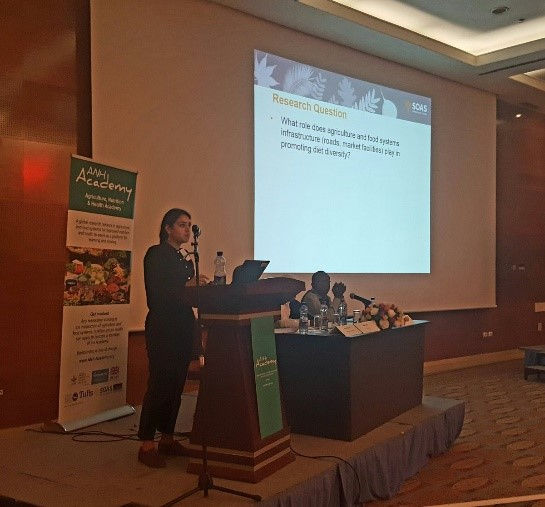Interview with Dr. Mehroosh Tak
- animalaspirations
- Dec 18, 2020
- 3 min read
I had the honour of getting to know Mehroosh earlier this month. I loved learning about her

journey to becoming an influential researcher globally and understanding her perspective of diversity in her field, coming from a South Asian background. Seeing someone of an ethnic minority, who looked like me in a high position in this field definitely inspired me to aim high and I hope the same message reaches many others after reading this.
Tell me about what you are doing currently?
I’m an economist by training and now lecture in agribusiness and economics at the RVC. I study food systems and spend my days thinking about methods that measure One health and food system interventions.
How did you get into this career and what made you decide to take this route?
I studied economics and maths in my undergraduate degree and my masters and PhD looked at cultural economics. I completed a Master degree in development economics which focused more on agricultural policy.

From your research, what are the biggest differences in agricultural and food policy between less economically developed and more economically developed countries?
A major difference between them is infrastructure for agriculture, e.g. warehouses for goods and produce, road networks connecting rural and urban areas and access to electricity.
Do vets have a significant role in the field you study?
Vets have a big role to play. But in middle income countries, farms are smaller and have less access to vets, so farmers may use human medicines on their animals without knowing the correct dosages. Vets are vital to keep the food system sustainable. For example, the debate on chlorinated chicken is close to home because of the food safety and animal welfare issues related and what economic impact this will have on local poultry farmers.
What is one of the most interesting things you researched or come across throughout your career?
One of the first research papers I ever wrote was on the effect of the global food crisis on Indian consumers and farmers. This was particularly interesting because of the food crisis in 2007-2008 which saw a lot of people fall into poverty, decreasing food security. Farmers are producers and consumers of food so if their income is reduced they cannot afford to buy many foods themselves.
What are your current goals for your career and research?
One of the enquiries I’m working on at the minute is food systems in places of political crisis or fragile zones e.g. Syria or Guatemala. I want to learn more about how these communities cope whilst under stress.

Could you describe a typical week in your life?
There’s a lot of exam marking or teaching depending on the season. Right now there’s about 10-20% marking, some online supervision for RP2 and PhD students. A lot of the week also goes into writing grant applications and coordinating with the research officer and other lecturers in and outside RVC to create collaborations. The rest of the time goes towards research and analysis of data to write papers.
Do you think your South Asian background has influenced choices you have made in your career or the opportunities open to you?
Yeah, definitely. I’m not British and there are many visa regulations in the UK so there are only certain jobs I am able to take such as short term research assistantships which then can open doors to more permanent jobs. It’s difficult when I don’t see enough people who look like me in senior positions which makes me wonder what it would take for me to reach there compared to someone who is British.
What advice would you give your 16 year old self based on challenges you have faced and experiences?
Read more about our society and it’s history and how that affects our lives now. Learn how to articulate your opinions, for example sometimes you see or read about something that is unjust and it makes you mad but if you explain to others, who may not relate to your life experiences, in an upset manner they are more likely to dismiss you than if you can explain something to them in a calmer, structural manner. But I know it’s a double edged sword – people who have experienced prejudices for example should not have to be the ones explaining it to others but some people don’t understand as we can see from the current BLM movement.
Written by: Dhanya Mahadevan
Disclaimer: We at Animal Aspirations pride ourselves as being an educational platform. We want people to formulate their own opinions, as well as respect the opinions of others. We kindly ask that you adhere to this message to help create a safe space for expression and starting conversations, for the benefit of everyone using this platform. Any discussion deemed to be offensive has the right to be removed by the Animal Aspirations team.











Comments